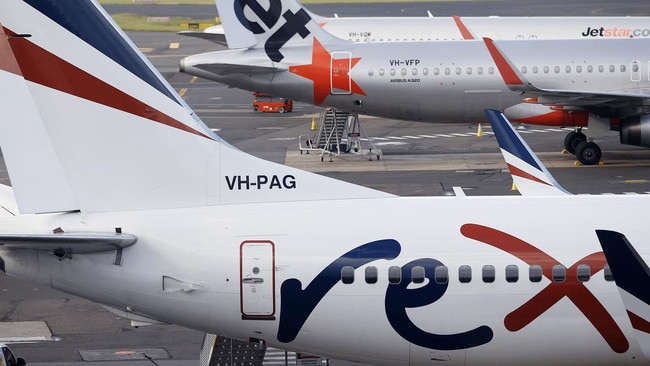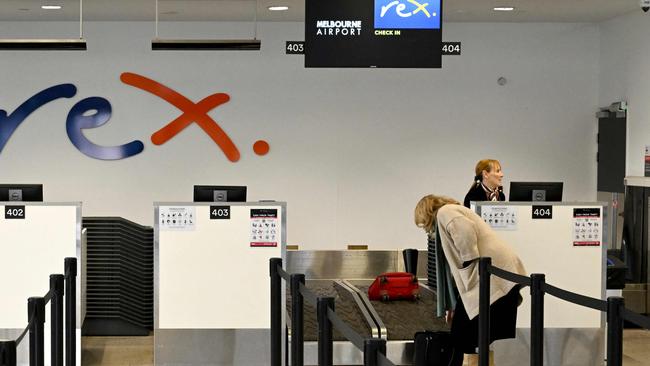
Suitors eyeing up the opportunity to own regional carrier Rex are said to be focusing on the state of the airline’s fleet, with market experts suggesting it is proving problematic for prospective buyers.
Despite those close to the situation remaining hopeful of a sale, a growing number of voices in the market are suggesting that the government inevitably will be part of the solution.
Rex, chaired by John Sharp, collapsed into administration in July with overall debts of about $500m.
A buyer would probably need to write a cheque of about $300m.
Final bids were due in about now, but the sale process timeline had been extended previously.
While several groups have weighed an acquisition, including private equity funds, sources say the age of the Rex fleet is deterring some buyers.
For its regional flights, Rex uses SAAB 340 planes that are about 30 years old.
Analysts say one of the reasons for the Rex downfall is that the company sacrificed spending on new planes to outlay the money on expanding into capital city services using 737 aircraft, competing with larger rivals Qantas and Virgin Australia.
Rex had 57 registered SAAB 340 aircraft, with an average age of 30 years. Twenty those planes that had not flown for between three and 12 months, and only 37 were in operation.
Analysts estimate that the planes, which have 33 seats, would cost about $7m each to replace. That could set a buyer back by about $400m if they were replacing the entire fleet, or $260m for the 37 in operation.
That’s on top of the $300m a buyer would need to outlay.
In the 2019 financial year before the pandemic hit, Rex was earning about $43.4m of earnings before interest, tax, depreciation and amortisation, and cashflow from operations was about $33m.

Any buyer would need the airline to be generating earnings that were above its cost of capital, so analysts suggest this would need to be 10 per cent at least.
One solution could be for the government to provide a loan to the new buyer at a low interest rate. Ensuring Rex survives would probably be important from a political perspective ahead of the federal election next year, given that the airline is considered an essential service, providing transport services to the regions.
PAG, which was a lender to Rex, has been suggested as a party to rescue the carrier, but it has already lost about $120m on its investment.
As previously reported, the part of the business that is most appealing to suitors is NSW and Victoria air ambulance services provider Pel-Air, which has Westpac as a lender of $170m and was the part of Rex that did not fall into receivership.
Regional carriers may buy parts, and include Western Australia’s Nexus Australia; Queensland carrier Skytrans; Link Airways, which flies in Queensland, NSW and the ACT; and Sharp Airlines, which flies in Western Australia.
The regional routes Rex operates are profitable, but its undoing came as it tried to compete with Qantas and Virgin by offering services out of capital cities and was unable to compete on price. Rex also owns a 50 per cent interest in the National Jet Express business, which provides services for fly-in, fly-out mining workers.
Deloitte and Ashurst are working for PAG, while law firm White & Case is helping EY with Rex.
For the six months to December 31, Rex made a $3.2m loss, compared to a $16.5m loss in the previous corresponding period.




To join the conversation, please log in. Don't have an account? Register
Join the conversation, you are commenting as Logout